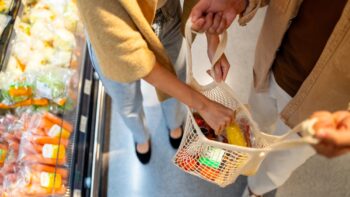Combating Food Insecurity in LGBTQ+ Communities: A Closer Look at Food Stamps and Supportive Resources
In a world that continually strives for inclusivity and acceptance, it is essential to shed light on the issue of food insecurity within LGBTQ+ communities. Food insecurity is a pervasive problem that affects countless individuals across the United States, but it disproportionately impacts LGBTQ+ individuals.
In this article, we will explore the challenges faced by LGBTQ+ individuals regarding food security, the role of food stamps in addressing these issues, and highlight supportive organizations and resources that are making a difference.
Understanding Food Insecurity in Vulnerable Communities
Food insecurity is a harsh reality for many LGBTQ+ individuals. Discrimination, stigma, and economic disparities contribute to higher rates of poverty within this community.
As a result, LGBTQ+ individuals are more likely to face difficulties in accessing nutritious and adequate meals. Additionally, many LGBTQ+ youth are at risk of homelessness, which further exacerbates their vulnerability to food insecurity.
But the LGBTQ+ community is not alone in facing these challenges. Learn more about how other populations, like the Native American communities, can be affected by food insecurities and get info about potential solutions here.
Addressing Food Insecurity with Food Stamps
Food stamps, officially known as the Supplemental Nutrition Assistance Program (SNAP), are a crucial resource in the battle against food insecurity. SNAP provides eligible individuals and families with financial assistance to purchase food, making it an essential lifeline for LGBTQ+ individuals facing economic challenges.
To access SNAP benefits, individuals must meet certain income and resource requirements, including the following:
- Being a U.S. citizen or having an eligible residency status
- Being a resident of the state where you plan to claim benefits
- Having a gross household income at or below 130% of the poverty line and a net household income at or below 100% of the poverty line
- See the USDA chart of federal poverty levels here.
- Participating in one of the following work activities if you are considered an Able Bodied Adult Without Dependents (ABAWD):
- Work for 80 hours per month
- Participate in a work program for 80 hours per month
- Work and participate in a work program for a total of 80 hours per month
- Participate in a workfare program for a specific number of hours, which depends on your SNAP allotment
- Having no more than $2,750 in countable resources (like cash or money in a bank account) or $4,250 in countable resources if at least one member of the household is age 60 or older or disabled
However, it’s important to note that the LGBTQ+ community has historically faced discrimination and bias in various aspects of life, including employment opportunities. This discrimination often leads to higher rates of unemployment and underemployment among LGBTQ+ individuals, which can make it difficult to meet SNAP’s eligibility criteria.
Advocacy organizations have been instrumental in pushing for changes in SNAP policies to make them more inclusive of LGBTQ+ individuals and their unique challenges. These efforts aim to ensure that LGBTQ+ individuals who may not meet traditional eligibility criteria still have access to the vital assistance they need.
Supportive Organizations and Resources
Several organizations are actively working to combat food insecurity within LGBTQ+ communities. Some of these organizations include:
- The Trevor Project: Known for its commitment to LGBTQ+ youth, The Trevor Project provides resources and support for LGBTQ+ individuals who are struggling with food insecurity. They offer guidance on accessing SNAP benefits and connecting with local food assistance programs.
- Feeding America: This nationwide network of food banks and pantries is dedicated to providing nutritious meals to those in need. Many local food banks are LGBTQ+ affirming and sensitive to the unique challenges faced by LGBTQ+ individuals and families.
- CenterLink: As an organization that supports LGBTQ+ community centers across the country, CenterLink plays a pivotal role in connecting individuals with local resources, including food assistance programs.
- GLAAD: Beyond advocating for LGBTQ+ representation in media, GLAAD also works on addressing social issues affecting the community. They provide information and support related to food insecurity and other challenges.
- Local LGBTQ+ Community Centers: Many local LGBTQ+ community centers offer food distribution programs and can provide information on accessing food assistance resources.
Conclusion
Food insecurity remains a pressing concern for LGBTQ+ communities, but it is not an insurmountable challenge. Initiatives such as SNAP and the efforts of supportive organizations are making a positive impact in addressing this issue.
By raising awareness and advocating for inclusive policies, we can work together to ensure that no LGBTQ+ individual goes hungry due to economic hardship or discrimination. It is a collective responsibility to create a more inclusive and equitable society for all, regardless of sexual orientation or gender identity.



